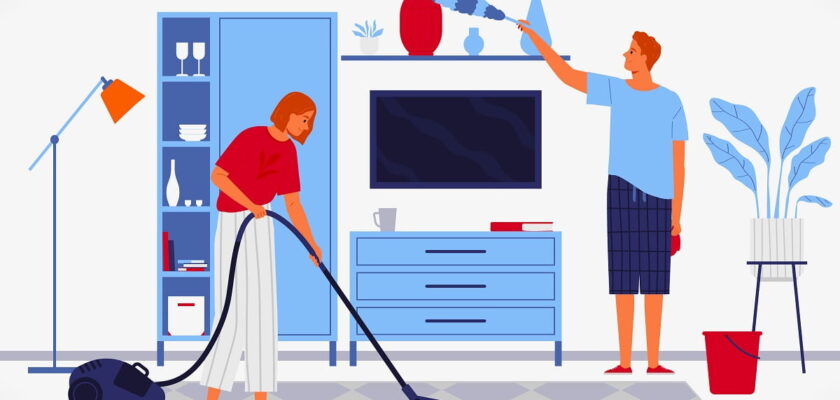Your home is more than just a place to lay your head at night—it’s where you find solace from the outside world and create cherished memories with loved ones. Yet, this sanctuary you’ve created for yourself and your family can be threatened by potential disasters lurking around every corner.
That’s why it’s crucial to equip yourself with knowledge and strategies to safeguard your home from common hazards and protect your loved ones.
So, join us as we dive into ten essential strategies to ensure your home remains a haven in the face of adversity.
1. Installing Safety Detectors
Equipping your home with smoke detectors and carbon monoxide alarms is crucial for homeowners or renters. Installation is just the start—regular testing and battery replacements are essential for optimal functionality.
These alarms offer early warnings during fires or gas leaks, allowing time for evacuation. With proper care, ensure your home is shielded from potential crises. Prioritize their installation and maintenance—it can be a lifesaver.
2. Electrical System Maintenance
Your home’s electrical system powers your daily life, yet it can degrade and pose risks over time. Regular checks are crucial to spot hazards like frayed wires or overloaded circuits, preventing electrical fires.
Professional annual inspections by an electrician decrease unforeseen issues, securing your home’s safety. Prioritize your family’s safety—schedule an inspection today.
3. Gutters and Downspouts Maintenance
Neglecting gutters and downspouts can harm your roof and foundation. Debris accumulation obstructs water flow, leading to overflow and potential water-related damage.
Regular gutter cleaning is crucial for proper drainage and avoiding expensive repairs. Protect your home’s value—address small issues to prevent larger problems.
Read More – Personal Debt Collection Agency Birmingham– What Makes Them So Important for Businesses?
4. Tree Trimming and Maintenance
Maintaining your home and property is crucial for homeowners. Don’t overlook trimming tree branches near your home, as it’s more critical than it seems. Cutting these branches prevents potential hazards during storms or high winds, safeguarding your property from damage.
This simple step can prevent future issues and assure your home’s safety. Take action now to secure your investments!
5. Securing Heavy Items
Family safety is paramount, especially concerning natural disasters and accidents. Unsecured heavy furniture poses a significant risk, not only during earthquakes but also due to accidental tipping caused by children or pets.
Ensure household safety by securing heavy items with anchors, brackets, or straps to prevent accidents and minimize risks during seismic activities. Prioritize family safety—invest in appropriate hardware to prevent avoidable dangers.
6. Fire Safety Measures
Even with diligent fire prevention, accidents can occur at home. To prepare, create a clear fire escape plan for all household members and maintain familiarity with it. Regularly inspect and upkeep fire extinguishers for immediate use during emergencies.
While acknowledging their importance, consider using decorative fire extinguisher covers that match your home’s aesthetic. Keeping flammable materials away from heat sources is crucial in preventing fires. These steps prioritize family safety and avert potential disasters.
7. Plumbing System Checks
Inspect your plumbing system regularly for leaks or signs of water damage. Insulating pipes to prevent freezing in cold weather and addressing issues promptly can prevent costly water damage and mold growth.
8. Roof Maintenance
Regularly inspect your roof for damaged or missing shingles. Prompt repairs can prevent water leaks and potential structural damage, preserving the integrity of your home.
9. Proper Storage of Hazardous Materials
Safely store chemicals, cleaning supplies, and other hazardous materials away from heat sources and out of children’s reach. Proper storage minimizes the risk of accidents or harmful exposures.
10. Preparedness for Natural Disasters
Create an emergency kit containing essential supplies and develop plans tailored to potential natural disasters in your region. Secure outdoor items during extreme weather and reinforce windows and doors against high winds or seismic activities.
In Conclusion
Safeguarding your home against potential disasters is essential to protect your family and property. By implementing proactive measures, such as prevention, preparedness, and regular maintenance, you can significantly reduce the likelihood of common disasters affecting your home.
It is crucial to remember that investing time and resources into preventive actions can save you from significant damages and potential danger in the long run. Shielding your home from disasters is a continuous process that prioritizes safety and peace of mind for you and your loved ones.
So, take the necessary steps to protect your home, and enjoy the peace of mind that comes with knowing you are well-prepared.

